#but i hope its ok?
Text
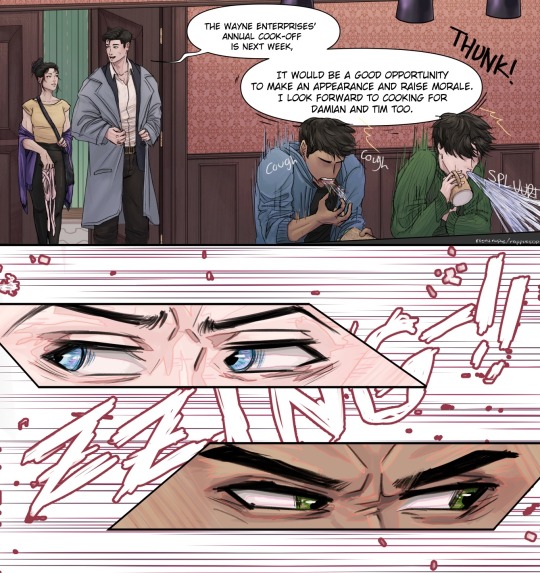
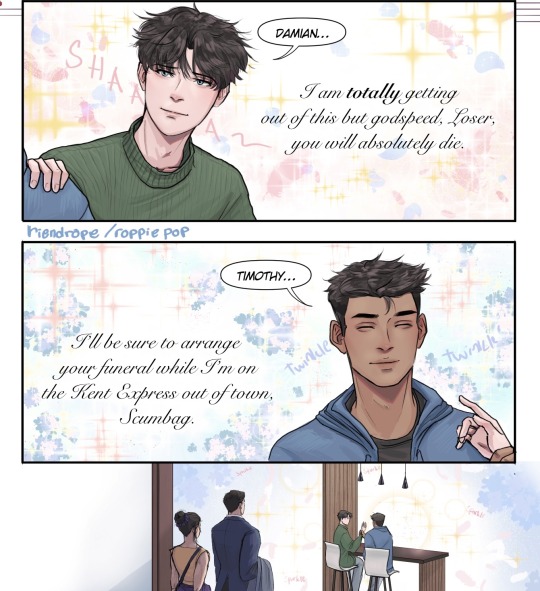
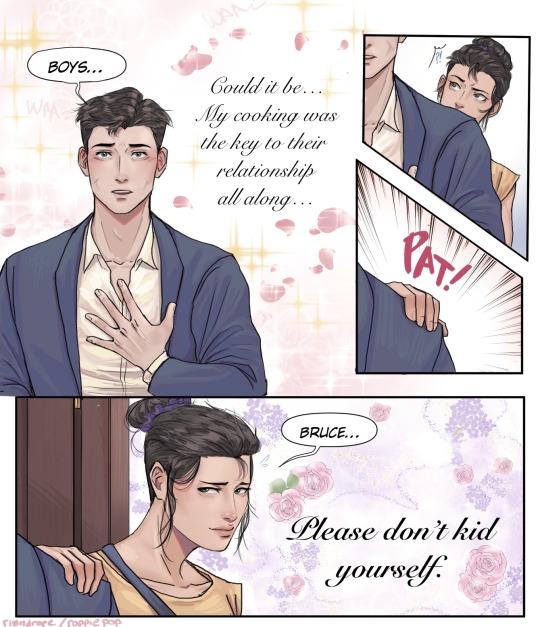
Who’s coming to the cookout?
#bruce wayne#tim drake#damian wayne#cassandra cain#batman#red robin#dc robin#batgirl#dc comics#batfam#batfamily#roppie tries to draw#WE ARE GOING TO IGNORE that comic where bruce seems to be able to cook now#bcs this has been in my drafts for literal years lmao thats how slow i am w these#this comic is also known as ‘wordless communication: how well your family knows you’#dont think too much abt the particulars abt any aspect of this ok 😃👍#i had fun playing around w how i color thinngs i hope its not too messy!!#WAIT DOES THIS SAY COOK-OFF I MEANT COOKOUT!!!!!!!!#(its not a roppie piece without a typo but please OTL read that as i intended im on the ground
10K notes
·
View notes
Text
ppl who r using poll results as a way to Prove Something about society or come to any conclusion.. i hope you are aware that tumblr users are one of the most biased population groups you could conceivably find. gob bless
#sis the variables... remember stats 101... ur data is only as good as ur sample#its like asking around at an old folks home and coming back saying 98% of those surveyed love prunes. therefore 98% of people love prunes#ok to reblog btw#polls r still fun i just hope you take into account who is responding to them
49K notes
·
View notes
Text
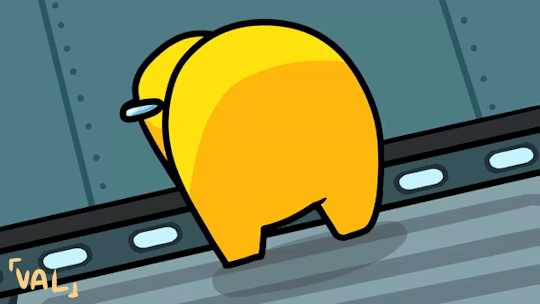
#jesus christ it’s not that deep stop killing each other in the notes#to repeat#JESUS CHRIST ITS NOT THAT DEEP STOP KILLING EACH OTHER IN THE NOTES#ok this is what you get for not being normal on my post#I hope all of your brainworms eat you alive
80K notes
·
View notes
Note
Saw your post and absolutely adore your art; could you draw any of the lifers with an oh expression?
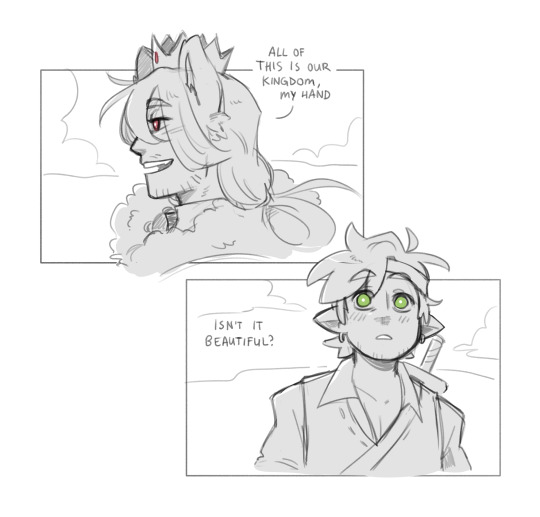
he's going to follow that man until the ends of the earth isn't he
#SORRY it's so messy#i'm so scared to “line” this because i'm pretty sure it's going to lose a lot of its... flow#so i hope this is ok too aaaaaaa#anyway one could say he feels “renchanted” by his king#i'll see myself out#ask#trafficshipping#renchanting duo#dogwarts#3rd life smp#traffic smp
3K notes
·
View notes
Text
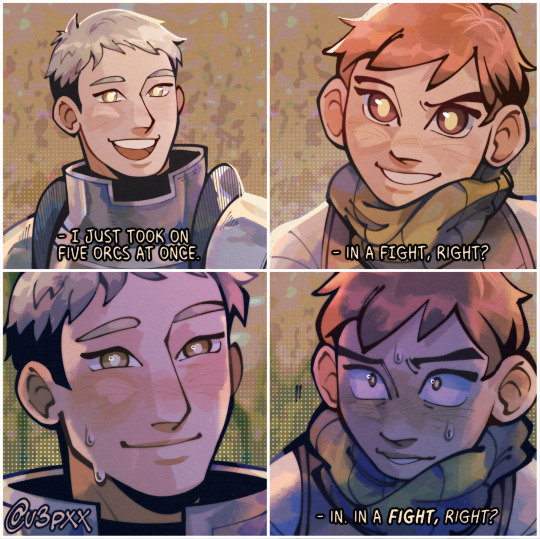
based on this post that just absolutely killed me when i first read it wheezes
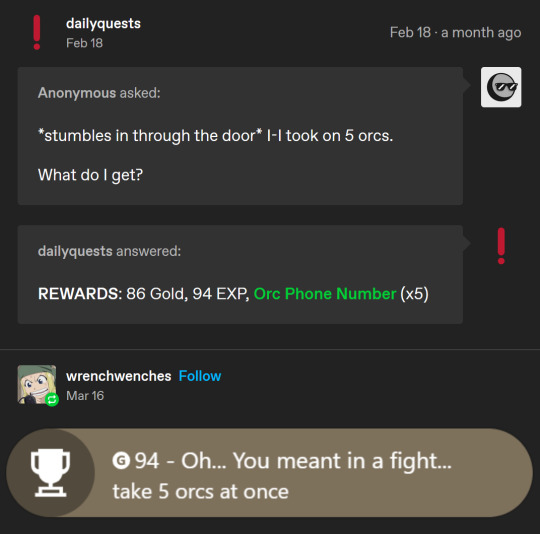
#dungeon meshi#delicious in dungeon#laios touden#laius thorden#chilchuck tims#chilchack#sunnysidedraws#thanks starry for this idea they are very ahgfghdj#OK SO I HAVENT FINISHED THE MANGA YET but i love these guys hope i can draw em more once i get the time <3#suggestive text#im sorry that my first rendered drawing of them was a shitpost SGDJ#tbf my other idea was also . a shitpost so its like lose lose over here pftt#for the better right meme#sunnysidemeshi
9K notes
·
View notes
Text

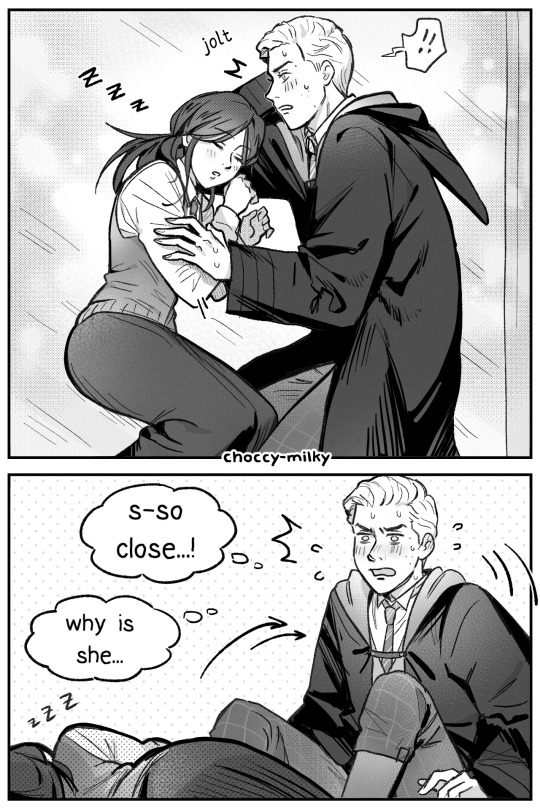

MC doing what we all wished we could do (aka napping on the floor with ominis )😴💕
#ill never get over how he just sleeps on the floor its so cute to me and seems so at odds with his personality which makes it better#hogwarts legacy#hphl#ominis gaunt#ominis gaunt x mc#ominis gaunt x oc#ominis x mc#hogwarts legacy ominis#hogwarts legacy fanart#hey look everyone its my nameless MC aka just brown haired clora LMAOOO#its like when u play a fighting game and you and your friend both choose the same chara. this is clora with a diff colour scheme BAHAHA#this has been in my wips for like a year im not even joking im glad to finally actually draw it properly LMAO#i also love how all of my ominis centric posts involve him on the floor/talking about the floor LMFAOO EVEN THE SMUT ONE#what can i say i just love a man who isnt afraid to chill on the floor ok#also i love a hypocritical man LMAO apparently. i always make seb a hypocrite and now im makin ominis one too#HOW COULD U SLEEP ON THE FLOOR MC?#meanwhile#also srry but dont get ur hopes up for more ominis content anytime soon this was just in my wips and i rly wanted to finally have it done#A RARE TREAT FOR THE OMINIS GIRLIES#choccyart
1K notes
·
View notes
Text
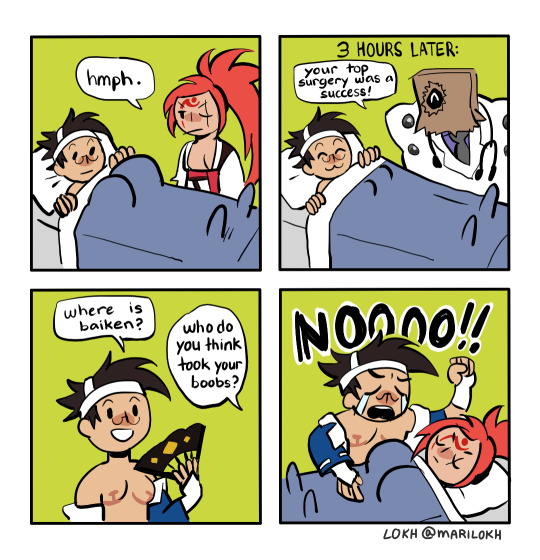
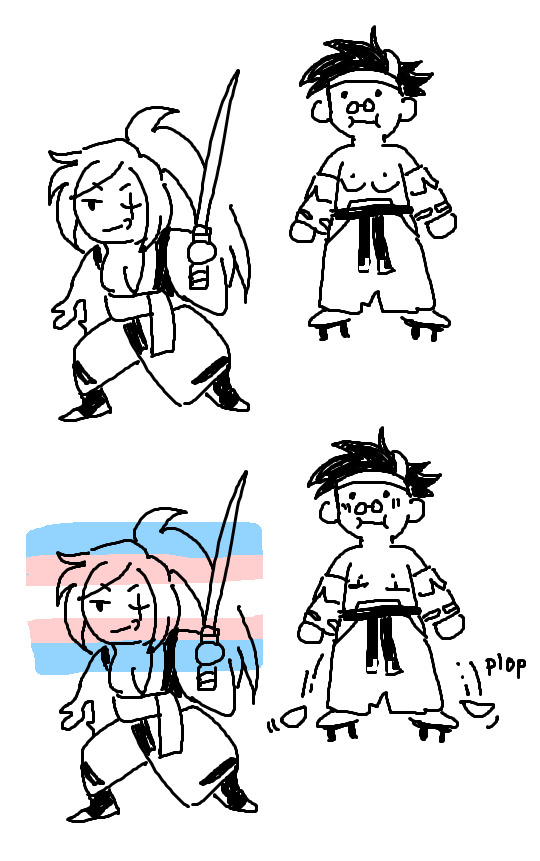
two possibilities.... the Real reason anji was missing from xrd (recovering from top surgery) and why baikens boobs suddenly got huge
the original of the samurai comic
#if the first one has already been done MY BAD LMAO#tumblr user crappycheese i hope its ok i did this lmao.#anji mito#baiken#guilty gear#art#ALSO i tried to track down the first comic based on the signature but im. not finding it rip#if u have a link to the source let me know!
3K notes
·
View notes
Text

under the same umbrella…? to hell with that!
if i did that, um, it'd mean…w-we'd practically be like a couple!
#yosuke hanamura#yu narukami#persona 4#souyo#still doing comms btw.. i believe i cleared everyone who requested me on tumblr anyways but i just wanted to give that update 9_9#ill erase that tag later since its just a mini updatein da tags#ok bye~~~ i hope ppl are enjoying the p3 remake... i gotta get on it soon but.. im.. tt..tired... and already got locked on p4...#...again#i'll draw some p3 soon ^3^ probably. I WANNA PLAY P2
2K notes
·
View notes
Text
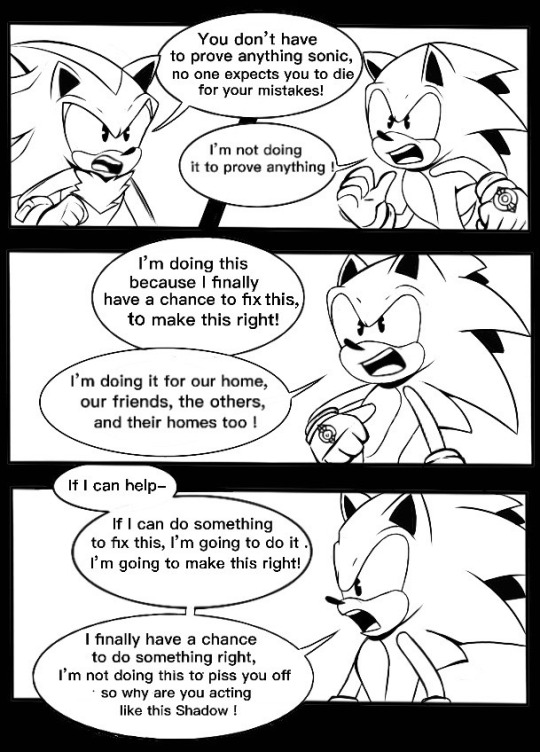
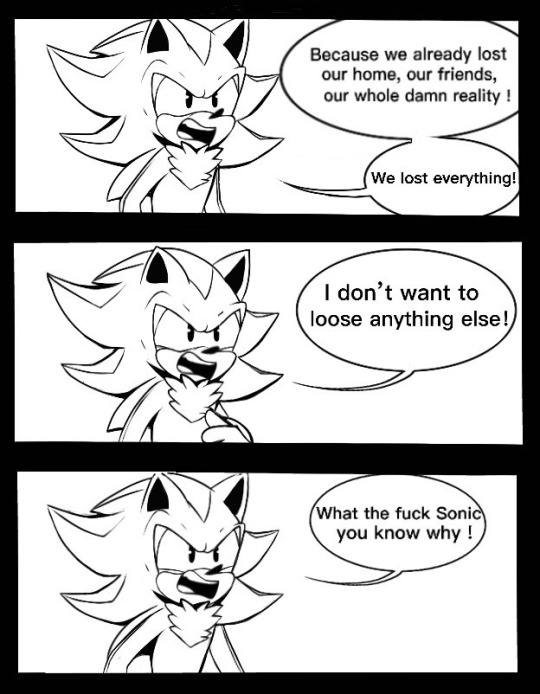
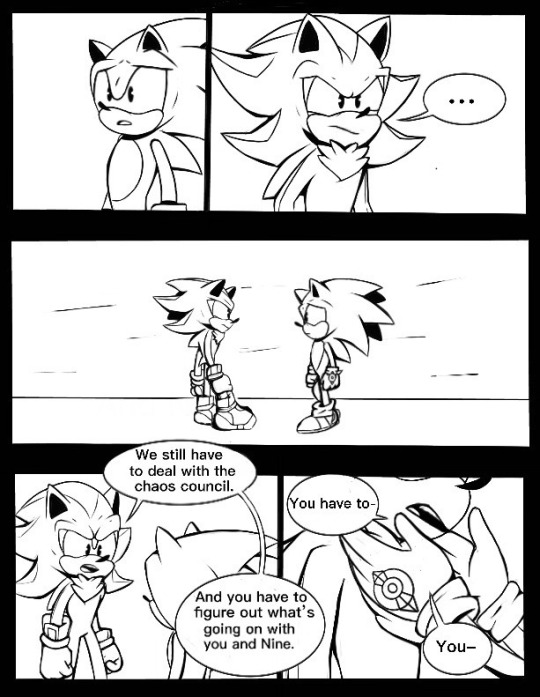
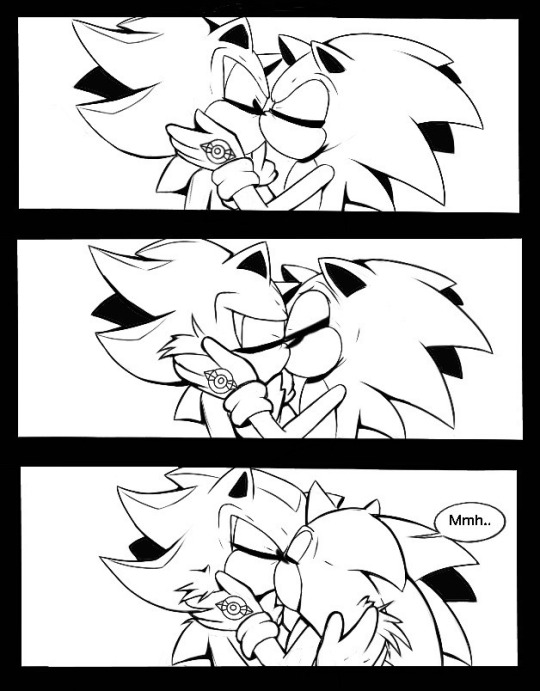
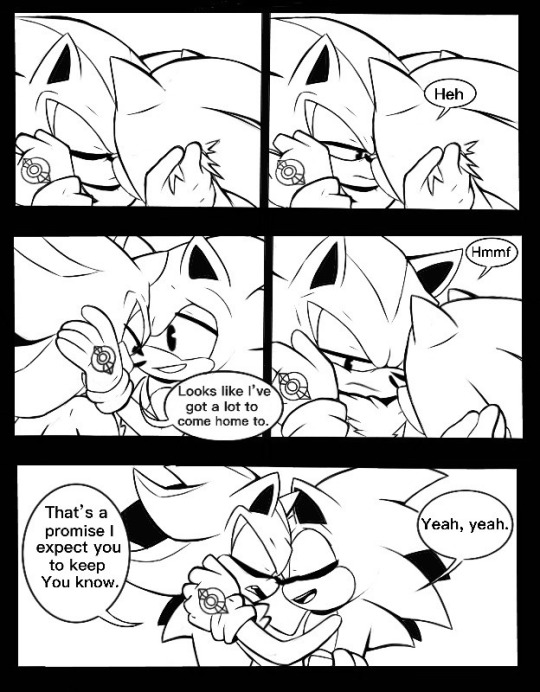
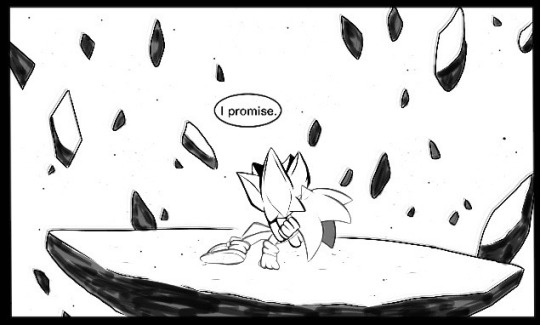
Don’t make promises you can’t keep
#IT IS DONE#WOW#ITS DONE#look at it look how awful it is#jk I’m just glad it’s done#enjoy I hope it came out ok#sonic prime season 3#sonic prime angst#sonic prime#sth#shadow the hedgehog#sonic#sonic fanart#sonic the hedgehog#mini comic#sonic art#sonadow#sonadow prime#sonic prime art#comics#art#digital artist#digital art#my art shit#I’m gonna miss prime so much man#art blog#artist on tumblr#my artwrok
2K notes
·
View notes
Text
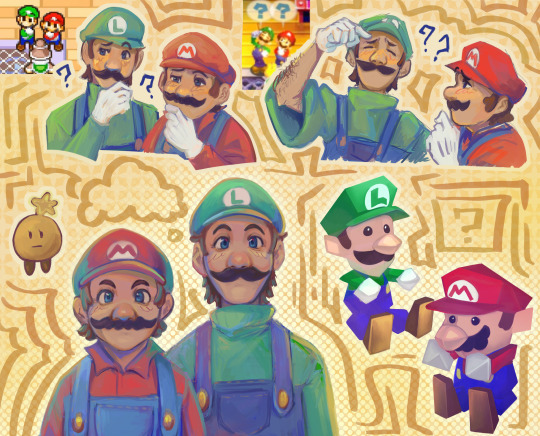
more mario and luigi doodles but i took their mouths away
+ extra unfinished stuff under the cut
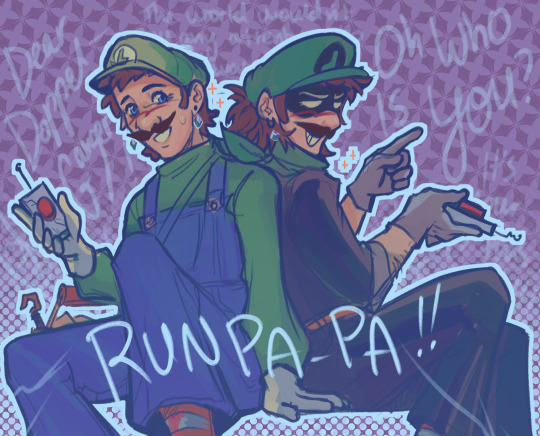
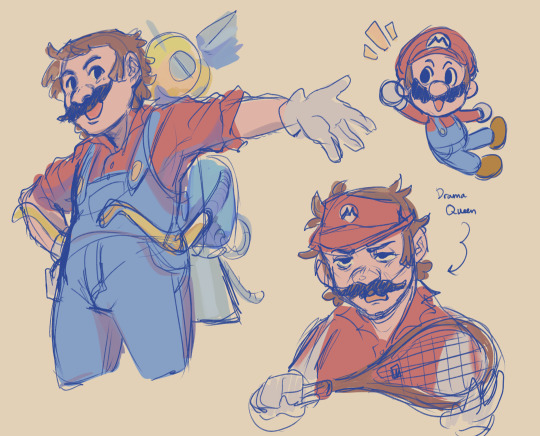
#the dear doppelganger weeg one is purely self indulgent bc ive been playing it on loop recently im normal#and i know doppelganger is a different whole thing than what he has but. hey its ok we ball#more spm on the way (i hope!!!!!! as long as i dont get distracted by avemuji or sekai for a bit)#most of this was practicing mario bc i still dont like the way i draw him tbh but i think we're getting somewhere#shoutout priv twt oomfies for dealing with my mario fix bullshit youre all so real#drawing these little guys is so much different from my other little guys i think thats why ive liked drawing them so much constantly#it just feels fresh for me!! i just get to fuck around when i draw them its fun to experiment again#ok done talking i like them a normal amount#mario and luigi#mario#luigi#super mario bros fanart#super mario bros#super mario fanart#spm#super paper mario#mr l#starlow#smb#super mario brothers#mario bros#mario fanart#art#fanart#my art#cloudy draws#nintendo#nintendo fanart
1K notes
·
View notes
Text
Long car trips mean hunch over my ipad and film dumb stupid videos in restaurants at 11pm 😍 (future me screw u idk if it’s shaky also do not perceive me)
(That one vine)
Also have the things
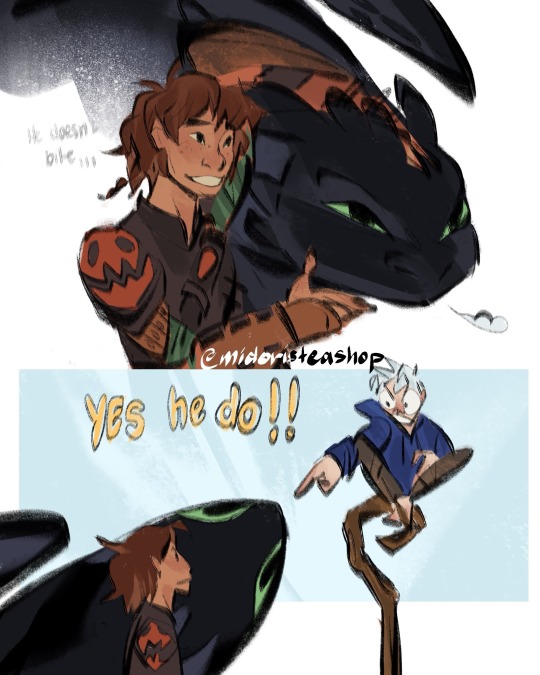


#I didn’t even plan to use this audio LMAO#it worked ig I just added words#hijack#jackycup#it’s so wild yall car trips fuck me up cuz what do u mean I slept 4 hours straight and now there’s snow#IN CALI??#ate some bomb ass food tho while filming and my sis just stared at me the whole time 😔#ig that’s how toofthelss greets people LMAO#expressions are fun#I may not animatic but I can sure hope and dream#if u see this no u didn’t#a little loopy it’s fine yall#edit: omgf ITS SO SHAKY I AM ASHAMED#TY FOR LIKING THIS BUT ALSO WOW DO I KINDA HAYE IT#😔 it’s ok I’ll just dig a hole and lay down for a while it’s fine
729 notes
·
View notes
Text
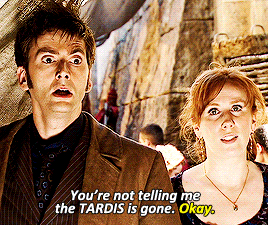
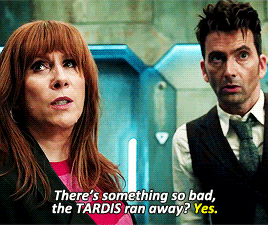




#mine#doctor who#dwedit#david tennant#catherine tate#dw spoilers#ok i mainly just wanted to make my own gifs of donna saying KICK ITS ARSE#:')))#and i've just been thinking all day about how this doctor has lost the ponds and clara and bill and river and walked away from yaz#since losing donna#and it just makes me FEEL THINGS#also i really hope big finish makes some more ten and donna adventures one day too pleaseeeee#(or fourteen and donna too but that most likely wouldn't really be possible)
2K notes
·
View notes
Text
How the heck is there not more talk about Tanith Lee??
Like my gosh, the woman wrote, according to her wiki, 90 books, over 300 short stories, two World Fantasy Awards, and was the first woman to win the British Fantasy Award/Augus Derleth Award and wrote for tv shows.
Like, it's not like she just wrote a heck ton but wasn't very good! She was clearly very good she won awards, and i've read a swath of her stuff across different genres and really enjoyed most of it. I mean that even if not each one has been my cup of tea I can at least appreciate the skill and quite a lot I have truly enjoyed. She's got great prose and style and imagination. Not everything obviously was a banger, but they've all been at least well written, which is harder to come by in writing than you might think.
But nobody ever seems to talk about her?? And I feel like the fantasy crowd on here would really enjoy her stuff. The woman has done stuff in pretty much every genre from what I can see, but I never see her listed on fantasy authors like Clive Barker or Diana Wynne Jones or Neil Gaiman or Terry Pratchett or Diane Duane even though she was writing at the same time and has a similar sort of '80s Doing Cool Stuff with Fantasy vibe' I feel like people who like those authors would enjoy though she's very much her own style of author.
Anyway this was really just me putting out a rant that such a prolific and talented author seems to have fallen by the wayside and I think it's really a shame
Heck she even did a witch-queen fighting againt vampire Snow White a whole decade before Neil Gaiman did his phenomenal Snow Glass Apples and it's also excellent, give a look here:
youtube
#tanith lee#fantasy authors#fantasy books#70s fantasy#80s fantasy#90s fantasy#british fantasy#British writers#i dunno how to tag i just want this woman to be remembered darn it#Youtube#i hope its ok to tag the authors mentioned#not trying to spam but like also want the fan crossover to get people interested in her again?#i dont know why i'm taking this so personally xD#neil gaiman#diane duane#terry pratchett#clive barker#diana wynne jones#vampire snow white
2K notes
·
View notes
Text
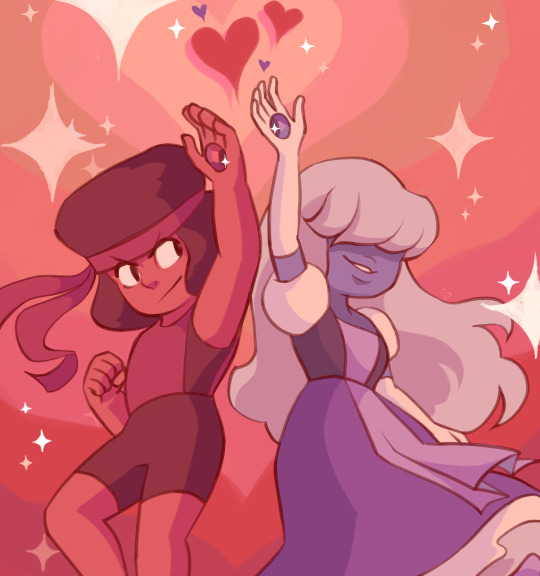
got some requests for rupphire
#ill be honest ive had an awful week sorry this isnt very polished but i hope its ok!#also i never remember which hand is which gem so please have mercy if this is flipped the wrong way#steven universe#rupphire#steven universe fanart#ruby#sapphire#art stuff
1K notes
·
View notes
Text
None Of You Know What Haiku Are
I'm going to preface this by saying that i am not an expert in ANY form of poetry, just an enthusiast. Also, this post is... really long. Too long? Definitely too long. Whoops! I love poetry.
If you ask most English-speaking people (or haiku-bot) what a haiku is, they would probably say that it's a form of poetry that has 3 lines, with 5, and then 7, and then 5 syllables in them. That's certainly what I was taught in school when we did our scant poetry unit, but since... idk elementary school when I learned that, I've learned that that's actually a pretty inaccurate definition of haiku. And I think that inaccurate definition is a big part of why most people (myself included until relatively recently!) think that haiku are kind of... dumb? unimpressive? simple and boring? I mean, if you can just put any words with the right number of syllables into 3 lines, what makes it special?
Well, let me get into why the 5-7-5 understanding of haiku is wrong, and also what makes haiku so special (with examples)!
First of all, Japanese doesn't have syllables! There's a few different names for what phonetic units actually make up the language- In Japanese, they're called "On" (音), which translates to "sound", although English-language linguists often call it a "mora" (μ), which (quoting from Wikipedia here) "is a basic timing unit in the phonology of some spoken languages, equal to or shorter than a syllable." (x) "Oh" is one syllable, and also one mora, whereas "Oi" has one syllable, but two moras. "Ba" has one mora, "Baa" has two moras, etc. In English, we would say that a haiku is made up of three lines, with 5-7-5 syllables in them, 17 syllables total. In Japanese, that would be 17 sounds.
For an example of the difference, the word "haiku", in English, has 2 syllables (hai-ku), but in Japanese, はいく has 3 sounds (ha-i-ku). "Christmas" has 2 syllables, but in Japanese, "クリスマス" (ku-ri-su-ma-su) is 5 sounds! that's a while line on its own! Sometimes the syllables are the same as the sounds ("sushi" is two syllables, and すし is two sounds), but sometimes they're very different.
In addition, words in Japanese are frequently longer than their English equivalents. For example, the word "cuckoo" in Japanese is "ほととぎす" (hototogisu).
Now, I'm sure you're all very impressed at how I can use an English to Japanese dictionary (thank you, my mother is proud), but what does any of this matter? So two languages are different. How does that impact our understanding of haiku?
Well, if you think about the fact that Japanese words are frequently longer than English words, AND that Japanese counts sounds and not syllables, you can see how, "based purely on a 17-syllable counting method, a poet writing in English could easily slip in enough words for two haiku in Japanese” (quote from Grit, Grace, and Gold: Haiku Celebrating the Sports of Summer by Kit Pancoast Nagamura). If you're writing a poem using 17 English syllables, you are writing significantly more content than is in an authentic Japanese haiku.
(Also not all Japanese haiku are 17 sounds at all. It's really more of a guideline.)
Focusing on the 5-7-5 form leads to ignoring other strategies/common conventions of haiku, which personally, I think are more interesting! Two of the big ones are kigo, a season word, and kireji, a cutting word.
Kigo are words/phrases/images associated with a particular season, like snow for winter, or cherry blossoms for spring. In Japan, they actually publish reference books of kigo called saijiki, which is basically like a dictionary or almanac of kigo, describing the meaning, providing a list of related words, and some haiku that use that kigo. Using a a particular kigo both grounds the haiku in a particular time, but also alludes to other haiku that have used the same one.
Kireji is a thing that doesn't easily translate to English, but it's almost like a spoken piece of punctuation, separating the haiku into two parts/images that resonate with and add depth to each other. Some examples of kireji would be "ya", "keri", and "kana." Here's kireji in action in one of the most famous haiku:
古池や 蛙飛び込む 水の音
(Furu ike ya kawazu tobikomu mizu no oto)
(The old pond —
A frog jumps in
The sound of the water.)
You can see the kireji at the end of the first line- 古池や literally translates to "old pond ya". The "ya" doesn't have linguistic meaning, but it denotes the separation between the two focuses of the haiku. First, we are picturing a pond. It's old, mature. The water is still. And then there's a frog! It's spring and he's fresh and new to the world! He jumps into the pond and goes "splash"! Wowie! When I say "cutting word", instead of say, a knife cutting, I like to imagine a film cut. The camera shows the pond, and then it cuts to the frog who jumps in.
English doesn't really have a version of this, at least not one that's spoken, but in English language haiku, people will frequently use a dash or an ellipses to fill the same role.
Format aside, there are also some conventions of the actual content, too. They frequently focus on nature, and are generally use direct language without metaphor. They use concrete images without judgement or analysis, inviting the reader to step into their shoes and imagine how they'd feel in the situation. It's not about describing how you feel, so much as it's about describing what made you feel.
Now, let's put it all together, looking at a haiku written Yosa Buson around 1760 (translated by Harold G. Henderson)
The piercing chill I feel:
my dead wife's comb, in our bedroom,
under my heel
We've got our kigo with "the piercing chill." We read that, and we imagine it's probably winter. It's cold, and the kind of cold wind that cuts through you. There's our kireji- this translation uses a colon to differentiate our two images: the piercing chill, and the poet stepping on his dead wife's comb. There's no descriptions of what the poet is feeling, but you can imagine stepping into his shoes. You can imagine the pain he's experiencing in that moment on your own.
"But tumblr user corvidcall!" I hear you say, "All the examples you've used so far are Japanese haiku that have been translated! Are you implying that it's impossible for a good haiku to be written in English?" NO!!!!! I love English haiku! Here's a good example, which won first place in the 2000 Henderson haiku contest, sponsored by the Haiku Society of America:
meteor shower . . .
a gentle wave
wets our sandals
When you read this one, can you imagine being in the poet's place? Do you feel the surprise as the tide comes in? Do you feel the summer-ness of the moment? Haiku are about describing things with the senses, and how you take in the world around you. In a way, it's like the poet is only setting a scene, which you inhabit and fill with meaning based on your own experiences. You and I are imagining different beaches, different waves, different people that make up the "our" it mentioned.
"Do I HAVE to include all these things when I write haiku? If I include all these things, does that mean my haiku will be good?" I mean, I don't know. What colors make up a good painting? What scenes make up a good play? It's a creative medium, and nobody can really tell you you can't experiment with form. Certainly not me! But I think it's important to know what the conventions of the form are, so you can appreciate good examples of it, and so you can know what you're actually experimenting with. And I mean... I'm not the poetry cops. But if you're not interested in engaging with the actual conventions and limitations of the form, then why are you even using that form?
I'll leave you with one more English language haiku, which is probably my favorite haiku ever. It was written by Tom Bierovic, and won first place at the 2021 Haiku Society of America Haiku Awards
a year at most . . .
we pretend to watch
the hummingbirds
Sources: (x) (x) (x) (x) (x) (x)
Further reading:
Forms in English Haiku by Keiko Imaoka
Haiku: A Whole Lot More Than 5-7-5 by Jack
How to Write a Bad Haiku by KrisL
Haiku Are Not a Joke: A Plea from a Poet Who Has Had It Up to Here by Sandra Simpson
Haiku Checklist by Katherine Raine
#poetry#haiku#writing#literature#anime life#long post#i want to apologize but i had to get something off my chest#and the thing was. i love haiku#and when i see posts on here about haiku. i get so angy.#well ok i really get more disappointed bc nobody is really engaging with the form on its own terms#anyway i hope you enjoy some of my favorite haiku because theyre in there!!!!!#i didnt really get into the history of haiku. and i also did not get into why i got really into it#but i will say that i was really inspired by Jacob Geller's video A Thousand Ways of Seeing a Forest#which is a lot about translation#(which i mean. as an interpreter AND a poetry-enjoyer. really appealed to me lol)
10K notes
·
View notes
Text

return of those earth kingdom dudes ig
(id: digital fanart of sokka and zuko from avatar the last airbender. they are shown nude from the waist up and embracing, sokka on the right facing zuko with one arm around zuko's shoulders and one hand on zuko's neck, and zuko on the left with his back to the viewer, head turning to face sokka, with one hand holding sokka's wrist and the other hand on sokka's back, pulling him closer. they are about to kiss, their foreheads pressed together, sokka's eyes closed and zuko looking at sokka's face. they are in a tent, backlit by sunlight coming through the tent opening. end id)
#zukka#blee arts#i dont know if the id needs more or less info#its a first attempt hope it comes across ok#also does this count as mature content idk
4K notes
·
View notes